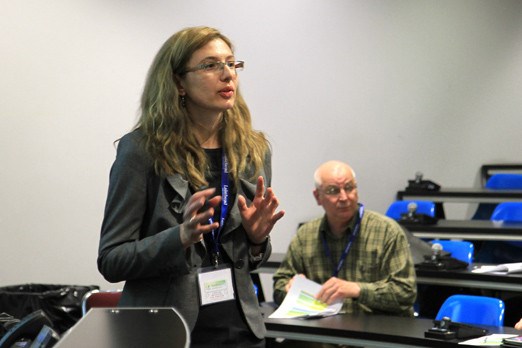While many people speak of the demise of the region’s forestry industry, experts from around the world are in Thunder Bay to discuss new opportunities set to bring it back.
Lakehead Univeristy, along with the Biorefining Research Institute, is holding the inaugural BIOFOR Conference this week. Research and industry experts from as far away as Turkey and Brazil, along with delegates from across North America, are gathering for two days to exchange knowledge and talk abot some of the new initiative’s early success.
“Where it’s going to and how it can actually assist or be part of our forest industry and help move our industry out of where it currently is,” Lakehead associate wood science professor Matthew Leitch said. ““We promote obviously the best utilization of our forest and this conference is a way of sort of promoting that and trying to bring our industries in the North here into a newer era.”
As the largest not-for-profit forest research institute in the world, FP Innovation is at the forefront of the biomass movement. Principal scientist John Schmidt was one of the first speakers at the conference. With so many possibilities to produce biofuels and products, it’s important that the right ones are being chosen he said.
“Biomass is still a fairly expensive feedstock so we have to make sure that we’re choosing processes that will direct it towards products that will give us a suitable margin and give us a sustainable industry going forward,” he said.
Sustainability economically as well as environmentally he said. Schmidt points to a pilot project at Thunder Bay’s Resolute Forest Products as an example. Now a year into production, the project is producing 100 kilograms of material a day that is being used for commercial testing.
“We’re very hopeful that that pilot plant will lead to a full-scale installation in the not too distant future at a mill in Northern Ontario,” Schmidt said.
Paul Stuart, a chemical engineering professor at Montreal’s Ecole Polytechnique, said the forestry industry across Canada is ripe with opportunity. While there have been many mill closures, a lot of them have the chance to get back up and running with biorefining projects.
““We really have to see the glass half full,” he said.
And while government support is crucial right now, Stuart said he’s sure the bioecnomy will one day be profitable enough to be taken on by the private sector solely.
“There’s a lot of risk both technology risk and market risk and the government plays a very important role there to catalyze if you will the initiation of this but in the long-term, forestry sector companies don’t want to rely on government support more than they need to,” he said.
